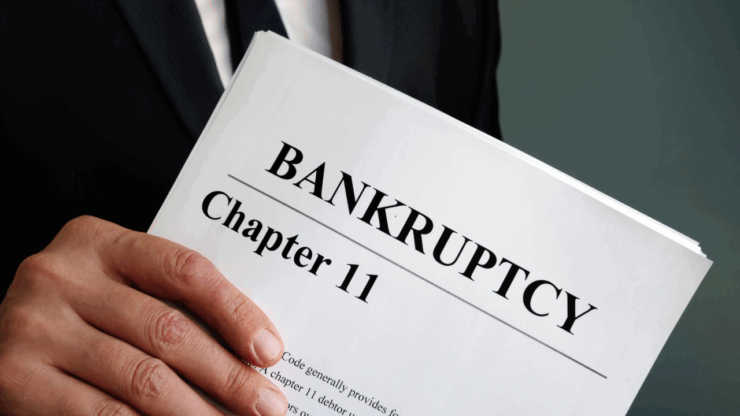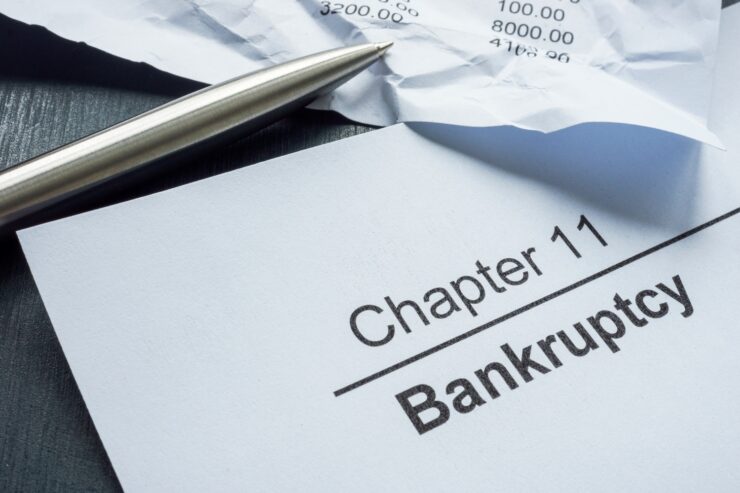Financial challenges can strike any business, whether a small family-owned company or a large corporation. When debts become overwhelming but the business still has potential to recover, Chapter 11 bankruptcy provides a structured path for reorganizing finances while continuing operations.
Because the process is complex and highly regulated, many businesses turn to a knowledgeable Florida Chapter 11 Bankruptcy Attorney for guidance. This article explains the purpose of Chapter 11 bankruptcy, how it works, and what businesses can expect during the reorganization process.
What Is Chapter 11 Bankruptcy?
Chapter 11 bankruptcy is a legal process that allows businesses to restructure their debts and operations under federal court supervision. Unlike Chapter 7 bankruptcy, which involves liquidation, Chapter 11 allows companies to continue operating while developing a repayment or restructuring plan.
Who Uses Chapter 11?
While Chapter 11 is most commonly associated with large corporations, it is also available to:
- Small businesses
- Partnerships
- Limited liability companies (LLCs)
- Sole proprietorships
Some individuals with extremely high levels of debt may also qualify for Chapter 11.
Purpose of Chapter 11

The primary goal is to help financially distressed businesses reorganize in a way that supports long-term viability. This often involves:
- Renegotiating contracts
- Reducing or restructuring debts
- Selling off non-essential assets
- Adjusting business operations
- Strengthening financial management
A Florida Chapter 11 Bankruptcy Attorney helps businesses evaluate these strategies and determine the most effective approach.
How Chapter 11 Protects Businesses
Filing for Chapter 11 immediately triggers a powerful legal protection known as the automatic stay.
The Automatic Stay
The automatic stay temporarily stops:
- Lawsuits from creditors
- Foreclosure actions
- Utility shut-offs
- Collection efforts
- Repossession attempts
This gives the business breathing room to develop a plan without pressure from aggressive collection activity.
Debtor in Possession
In most Chapter 11 cases, the existing management continues running the company as a “debtor in possession,” meaning they retain control but must follow strict court supervision. This allows operations to continue while restructuring plans are developed.
Preparing to File ─ The Importance of Legal Guidance

Chapter 11 cases involve extensive documentation, financial analysis, and legal strategy. Proper preparation is critical to avoid delays or dismissal.
Initial Assessment
A lawyer helps evaluate whether Chapter 11 is the right option by reviewing:
- Current debts
- Assets and liabilities
- Revenue streams
- Contract obligations
- Long-term viability
If Chapter 11 is appropriate, the attorney begins preparing the necessary documentation.
Filing Documents
The initial filing requires:
- Bankruptcy petition
- Schedules of assets and debts
- List of creditors
- Financial statements
- Statement of operations
An attorney ensures accuracy and completeness, which is essential for a smooth process.
The Reorganization Plan
At the heart of Chapter 11 is the reorganization plan, a detailed proposal outlining how the business will repay creditors and improve its financial structure.
Components of the Plan
A reorganization plan may include:
- Reduced debt payments
- Extended repayment timelines
- Renegotiated leases or contracts
- Sale of certain assets
- Operational changes
- Modified interest rates
The plan must be realistic and supported by financial projections.
Creditor Participation

Creditors have the right to review the plan and vote on its approval. They are organized into classes based on the type of debt they hold. For the plan to move forward, a majority of creditors in each class must approve it.
Confirmation by the Court
If creditors agree, the bankruptcy court reviews the proposal to ensure it meets legal requirements. If necessary, the court can approve a plan even without unanimous creditor support, as long as it meets specific standards. This is known as a cramdown.
A Florida Chapter 11 Bankruptcy Attorney plays a key role in negotiating with creditors and preparing a plan that satisfies both legal and financial requirements.
Small Business and Subchapter V Cases
Recent changes to bankruptcy law have made Chapter 11 more accessible to small businesses.
What Is Subchapter V?
Subchapter V is a streamlined version of Chapter 11 designed for smaller businesses with lower debt levels. Its benefits include:
- Faster timelines
- Reduced costs
- No requirement for a creditor committee
- Simplified reorganization procedures
A trustee is appointed to help oversee the process, but the business generally keeps operational control.
Advantages for Small Businesses
Subchapter V helps businesses:
- Retain ownership
- Reduce administrative burdens
- Develop manageable repayment plans
This option has become increasingly popular for small and mid-sized companies navigating financial disruptions.
Responsibilities During Chapter 11

Businesses must meet ongoing obligations while their case progresses.
Monthly Operating Reports
Companies must submit detailed financial reports, including:
- Revenue
- Expenses
- Cash flow
- Profit and loss statements
These reports ensure transparency and help the court monitor the company’s progress.
Compliance with Court Orders
All financial decisions must follow bankruptcy rules. Major transactions often require court approval, including:
- Asset sales
- New financing arrangements
- Contract terminations
Legal representation is essential for navigating these requirements correctly.
Life After Chapter 11
Once the reorganization plan is approved and implemented, the business emerges from bankruptcy with a stronger financial structure.
Post-Bankruptcy Operations
Companies that complete Chapter 11 often benefit from:
- Reduced debt burdens
- Improved cash flow
- More stable business operations
- Renewed investor confidence
With a successful plan in place, businesses can move forward with a clearer financial outlook.
Final Insights
Chapter 11 bankruptcy offers struggling businesses a structured opportunity to reorganize, regain stability, and continue operating. The process is complex and requires careful planning, financial analysis, and legal oversight.
A knowledgeable Florida Chapter 11 Bankruptcy Attorney helps companies navigate the requirements, develop a workable reorganization plan, and protect their interests at every stage. By understanding how Chapter 11 works, business owners can make informed decisions about managing debt and rebuilding financial strength.

